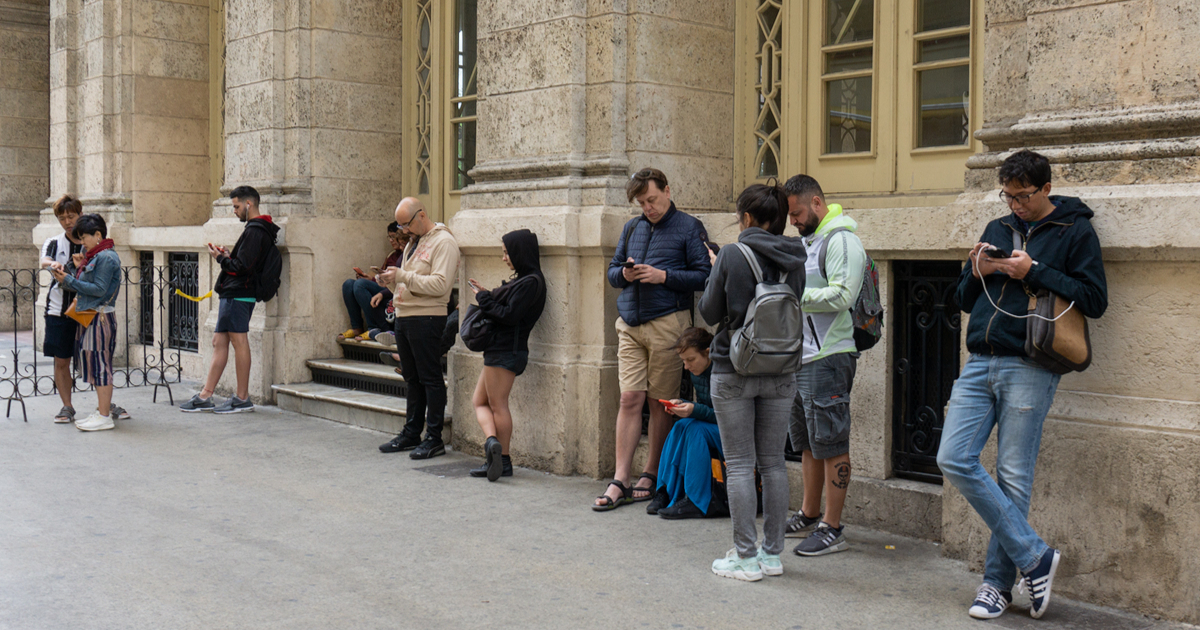The halt in funding from the United States to international aid has significantly affected many independent Cuban media outlets, pushing them to seek alternative financing solutions. Among those impacted is Diario de Cuba, a Madrid-based publication with a 15-year history. Its director, Pablo Díaz, has reached out to readers for support in response to the suspension of grants, aiming to uphold their commitment to "championing and defending freedom of expression on the Island."
While the regime continues its "repressive catalog," U.S. government aid to independent journalism remains frozen, which, according to Díaz, "makes the work of outlets like Diario de Cuba (DDC) even more challenging." Within this framework, Díaz has issued a message to his audience, urging them to "support our efforts to maintain high journalism standards in a closed society like Cuba."
"Through our work, we not only inform the Cuban people or expose the political, economic, and social crises inflicted by the regime. We also train journalists, exploit every opportunity to circumvent digital censorship, and promote a vision of a different Cuba. However, our work comes at a cost: imprisonment, exile, interrogations, detentions, travel bans, harassment of relatives, and cyber-attacks," Díaz stated in an editorial published on February 7 on the DDC website.
Emphasizing the need for resources in journalism, especially in a "de-capitalized and hostage" nation like theirs, Díaz calls on Cubans living abroad to make voluntary contributions to DDC. "No amount is too small. The cost of a coffee where you live. Such assistance is crucial for us to continue delivering information to a Cuba that will undoubtedly soon be free," he concluded.
The crisis stemming from the suspension of subsidies to independent media under the Cuban regime has been highlighted by Reuters. This Monday, the agency not only covered DDC's editorial but also the response of other platforms like Cubanet, which received half a million dollars from USAID in 2024 and recently also sought reader support.
In a link attached to its Instagram profile, the longstanding independent Cuban press, with 25 years of experience, appeals to its readers for help in facing "an unexpected challenge," referring to the withdrawal of U.S. funds that sustained their team's work. "Our journalists live and work within Cuba, confronting the regime's repression and the country's abject poverty daily. Our role for all these years has been to support them and provide the resources needed for their critical work. If Cubanet ceases to inform, those who wish to obscure the truth will fill the void."
Although they suggest donations between $3 and $10, they welcome any amount. "Every contribution, big or small, allows us to continue giving a voice to the voiceless," they emphasize in their appeal for financial support.
In its report on the independent media crisis, Reuters mentions CiberCuba, one of the few outlets that have neither received nor sought aid from any government or institutional bodies, public or private, in its decade-long history. Consequently, it will continue operating independently of the USAID and NED funding cuts. "We are 100% funded by advertising," explained Luis Flores, CEO of the platform.
Apart from exceptions like CiberCuba and Café Fuerte, analysts have told AP that the reduction in U.S. foreign aid might benefit dictatorships and autocracies. In fact, Cuban activist Laritza Diversent from Cubalex already noted to this portal that without grants, she could not sustain the legal advisory team that has monitored human rights violations in Cuba for years. However, she assured that she would continue her work, albeit with an awareness of achieving neither the same results nor the same impact.
Impact of USAID Funding Cuts on Cuban Media
How have independent Cuban media been affected by the suspension of USAID grants?
The suspension has forced many outlets to seek alternative funding methods, as they can no longer rely on U.S. support to sustain their operations and continue their journalistic work in a challenging environment.
What actions are media outlets like Diario de Cuba taking in response to funding cuts?
Diario de Cuba has reached out to its readers, requesting voluntary contributions to help maintain their work and uphold journalistic standards despite the challenging conditions in Cuba.
Which Cuban media platforms continue to operate independently of U.S. government funding?
CiberCuba is one of the few platforms that has operated without any governmental or institutional support, relying entirely on advertising for financial sustenance.
